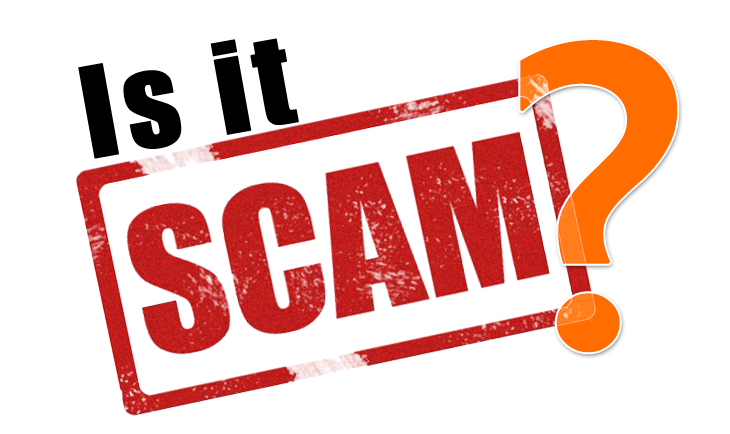When any product is reviewed, it means a user has experienced that product and either had a positive or negative feedback after the use of that product.
Let’s take for example, before we download any software application, for us to know it will be of help to us, we scroll down for reviews, right?
And if the reviews we see are not positive, we tend to abandon the software for another which has a positive review right?
We all are lovers of good reviews and that’s why businesses send screenshots of various reviews from their customers and most times even do a video review which makes people to believe more. No one wants to spend money on a bad product.
- Must Read: Everything you need to know about Romance Scam (Dating Scam) – Safety Guide
Reviews are also an essential and integral part of purchasing products for many products because this makes people believe how authentic, reliable and original the products have been because it is believed that whatever is reviewed has been experienced by someone who either loves or dislikes the product.
Due to this reason, many businesses have tried to tamper with these reviews by making it favor them and present a good image of the product to the society.
In this article, we elaborated on helping people detect various review scam on media pages and on websites and helps you distinguish a trusted brand from a brand built on fake reviews.
So many brands are in the habit of manipulating reviews by fabricating positive messages by themselves or paying for fake reviews and five-star ratings on their profiles, sites and products. It is important to be aware of these practices in order not to fall victim to these reviews.
IS EVERYONE AWARE AND BOTHERED ABOUT FAKE REVIEWS?
Fake reviews are always misleading the consumers and as such, this is a major problem to consumers when getting a product, they are not familiar with.
These reviews also tend to shut the consumers with experiences up thereby taking away their freedom of speech and also make them waste money purchasing a product they felt was genuine.
Fake reviews are very discomforting and they make people believe in fake products which could be expensive. For instance, imagine having to save for an expensive product and then you purchase a fake product even after getting good reviews about the site or the product.
Adverts that support a particular political party is seen as less deceiving than fake reviews because they only get to dupe you off your money you worked so hard for.
In terms of figures, in 2019, US consumers wasted a sum of $125 due to fake reviews and with the way the reviews are still growing, we should have an increased number of monetary figures in 2022.
For buyers who are concerned with fake reviews and their impact when they are purchasing, understanding the systems and patterns of review fraud is the first step of protecting themselves.
- Popular Article: How to Recognise Phishing Scams and also Avoid Them
The Many Faces of Fake Reviews and How They Work?
One may think that websites with coherent review platforms or review sites that do not allow a third-party comment are immune to fake reviews, but these fake reviews which can be from purchased reviews or complex schemes are aimed at strengthening the ratings of the website and watering down the effect of negative reviews.
One of these patterns were revealed when the US Federal Trade Commission settled complex and well-thought out fake review case with Sunday Riley, a skin-care and Cosmetic company.
The company’s CEO made the employees rate a five-star review on the Sunday skin-care and cosmetic company on Sephora.com and had them dislike any negative reviews left on the site where the product was being sold, and write their own positive reviews which will make these negative reviews have a lesser impact on their customers.
Some companies in 2020, were charged with convincing consumers to believe the fake “accurate” and “original” reviews of financial products, including loans for students, loans for personal use, business loans and mortgages.
It was noticed that these reviews were actually based on a pay-to-play scheme where the reviews were based on companies that pay and not based on how a user has experienced that product positively or negatively.
Often and on, people also use the fake reviews as a weapon to tarnish the image of so many brands and businesses. For example, a female hygiene company, owned by a black came under attack when she was praised by the target Advert during the Black History Month for being in a competitive health sector and still doing well.
Consumers attacked the page with fake reviews that were not based on a one-to-one user experience with product and even explicit and racist languages.
These and more examples show how third-party review platforms can damage a brand/company’s reputation based on hate toward the company, inauthentic experiences or personal beliefs and religion.
Small businesses also indulge in the crime of manipulating their ratings and reviews on their websites using credit cards to purchase reviews for sites like Amazon and Google where their business is being advertised and even their social media pages.
How to Detect Fake Reviews
- Have an open platform so people who wants to share their reviews of an experience with your product can do that seamlessly whether they are invited or not. If your real customers do not have the access to reviewing your products, people won’t want to patronize a brand with little or no reviews and that will lead to loss of customers.
- Protect your platform by constantly checking your review sites and; If these reviews do not represent a genuine user experience or it looks like a deliberate attempt to tarnish the brand’s image, then be sure to know it’s a fake review and such account should be reported. Also, machine-learning algorithms that can detect fake reviews should be studied.
Lastly, companies should run a honest and clean business and adhere to the polices of reviews. For the customers, if you have issues with the concerned product or customer service, politely try to explain why you where not happy with their products. Also, if satisfied, explain what made you love their products. Let’s do better and be better.
See what others are Reading:
- Revealed: How scammers can use your phone to exploit you
- Top 5 Things You Need to Know About Romance Scams
- What exactly is a Spam Mail? & How can I avoid them (Safety Guide)


